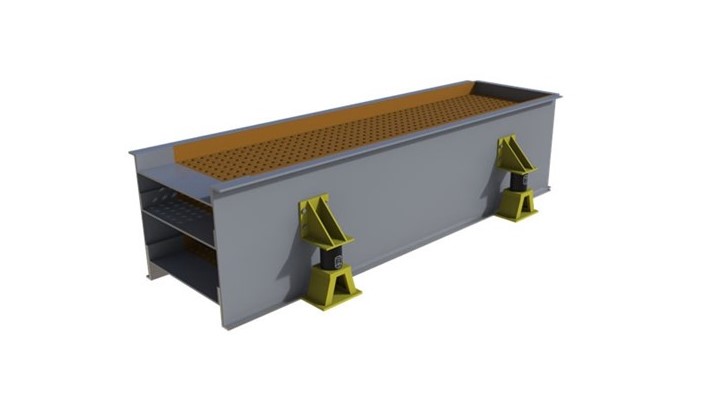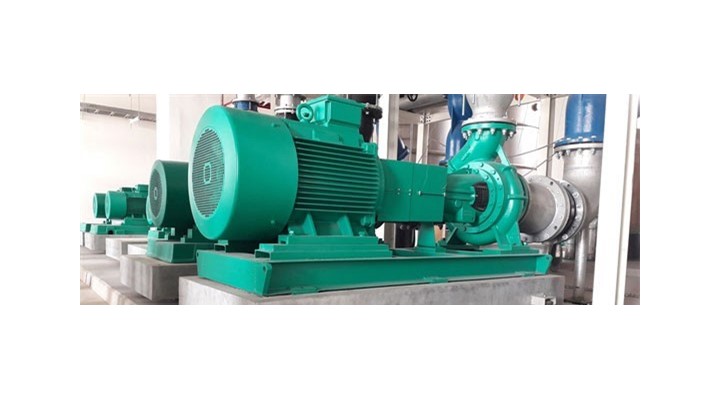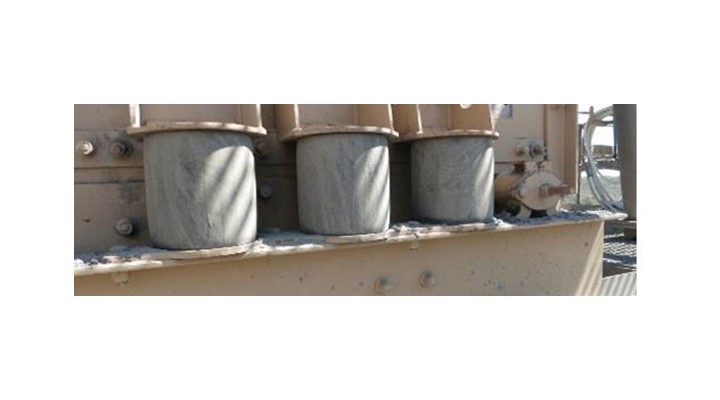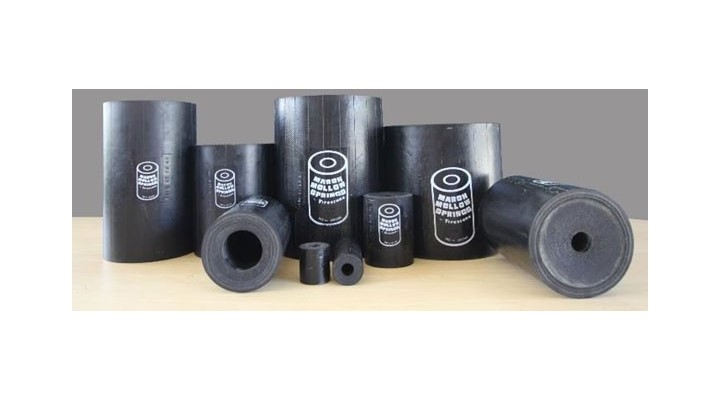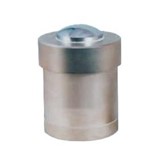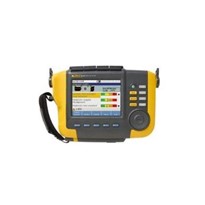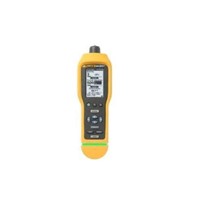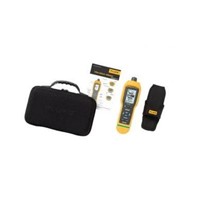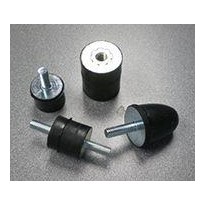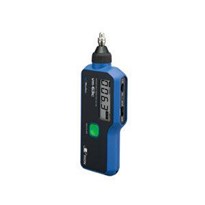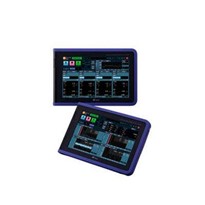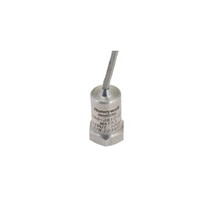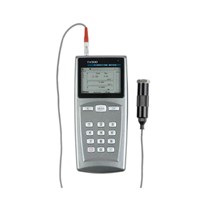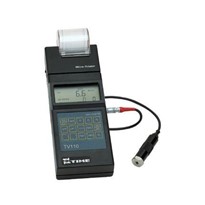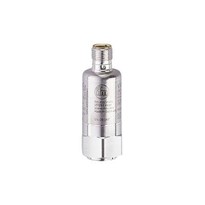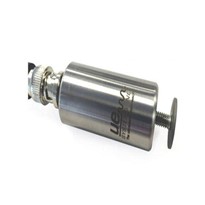The mechanical engineering of each type of screen can vary widely, but the basics are similar: a drive that induces vibration, a screen media that causes particle separation, and a deck which holds the screen media, through which the drive imparts the energy that breaks down and separates the components.
Vibratory machines can be categorised into moving screen and static screen machines, as well as by whether the screens are horizontal or inclined to feed material to conveyors or containers for further communition, refinement, extraction of waste or ongoing processing into an intermediary product or a finished product.
While the design and purpose of vibratory machines are widely different, they share a number of operational and maintenance issues arising from the huge amount of energy they transmit and the loads they carry.
These challenges include increasingly important OH&S issues – such as noise, harshness and vibration (NVH) – as well as frequency of breakdowns and downtime arising from massive impacts on the metal springs that often provide the dampening essential to efficient processing.
“When a metal spring breaks, it can bring the whole process literally to a grinding halt,” says actuation and isolation specialist James Maslin. “Further, it can be very difficult and hazardous to crawl into or otherwise access the confined, dirty, dusty or wet spaces encountered.”
If vibration is left unchecked, the consequences can include:
- Energy waste due to kinetic energy required for vibration
- Operator fatigue and noise nuisance (NVH – noise, harshness and vibration is increasingly a factor in workers compensation issues)
- Bearing failures, metal spring cracking and collapse, metal structure cracking and weaknesses potentially leading to unexpected plant shutdowns.
- Interference with nearby computer, electrical and electro-magnetic equipment, potentially leading to production disruption.
“Such problems are not unique to vibrating screens, but are often very common in this type of machinery,” says James Maslin.
“Vibration occurs in all rotating or reciprocating machinery as a result of forces generated within it. Sometimes the vibration is intended – as in vibrating screens and vibrating conveyor sections, for example – and sometimes it is caused by imbalances in rotors, bearings, springs and gears as vibration migrates from the source to surrounding structures and wear-prone components.
In a huge number of instances – particularly vibrating screens, the root problem is metal springs and a solution can be their replacement with quieter and less damage prone replacements,” says Mr. Maslin, who is National Sales and Marketing Manager for long-established national actuation and isolation company Air Springs Supply Pty Ltd.
Air Springs Supply is national distributor of Firestone Industrial Products materials handling technologies including Firestone Airstroke® and Airmount® very high efficiency pneumatic isolators and Firestone low-maintenance, high efficiency Marsh Mellow® high efficiency solid isolators.
Marsh Mellow springs – which are ideal for low-maintenance application in vibrating screens and vibrating conveyors – are fabric-reinforced solid rubber isolators used for quiet isolation of machinery vibration and for general shock absorption throughout industry.
The cylindrical springs, developed by Firestone are used world-wide as an alternative to metal coil springs for applications involving mining and mineral processing, food and beverage and primary product processing, mineral processing and isolation of technologies involved in construction, computer, electrical and electronic equipment including motors, gearboxes, compressors, conveyors, materials handling machinery and shock absorbers.
Marsh Mellows give consistent performance regardless of changing loads, while offering high lateral stability and compact size, says Mr. Maslin. They are constructed of a solid rubber core with a hollow centre and several plies of fabric-reinforced rubber as an outer cover. The plies provide the springs with stability as well as a consistent cylindrical shape.
Marsh Mellow springs are quiet in operation, unlike steel springs which readily transmit high frequency structural noise and often suffer from coil chatter.
A failing coil spring may crack, causing fragments of the coil to damage equipment, resulting in expensive downtime. This problem is eliminated with Marsh Mellow springs, which are tolerant of overload and, if they ever do fail, do not fail catastrophically.
The quiet performance of Marsh Mellows – and the fact that they resist water and grit – means they are ideal for applications where high levels of workplace safety and hygiene are essential. Such applications can range from metals and minerals plants through to primary processing, timber and paper and food and beverage.
“The low natural frequencies of Marsh Mellow springs mean they provide excellent isolation of forced frequencies in the range of 800-1200 cycles per minute (13-20 Hz),” he says.
“Their high load capability means fewer springs may be needed in an application, resulting in less overall cost,” said Mr. Maslin, adding that Marsh Mellow spring elements may be modified to meet customers’ specific load and performance requirements.
Marsh Mellow’s fabric-reinforced spring has more lateral stability than an all-rubber spring of the same size, so it can support greater loads while maintaining its cylindrical shape.
A spring with a smaller overall size than an all-rubber spring of identical load capacity can be chosen, which is an important factor where space is restricted, says Mr. Maslin.
Marsh Mellow springs are maintenance-free. They have no moving parts and require no lubrication. Their rubber and fabric-reinforced construction is corrosion resistant for a durable, long life. The spring has been proven in the worst damp and corrosive environments of mines and mills where a standard coil spring will fail.
The springs available from the Marsh Mellow catalogue range in size from the 0216 model with an unloaded height of 44 mm and outside diameter of 41 mm, through to models such as the 0243 with an unloaded height of 203 mm and an outside diameter of 279 mm. The Marsh Mellow manual and Marsh Mellow isolation springs can obtained from Air Springs Supply of or by inquiry to their agents in all States.
For a broader assessment of the benefits and limitations of Air Springs, please contact us.


